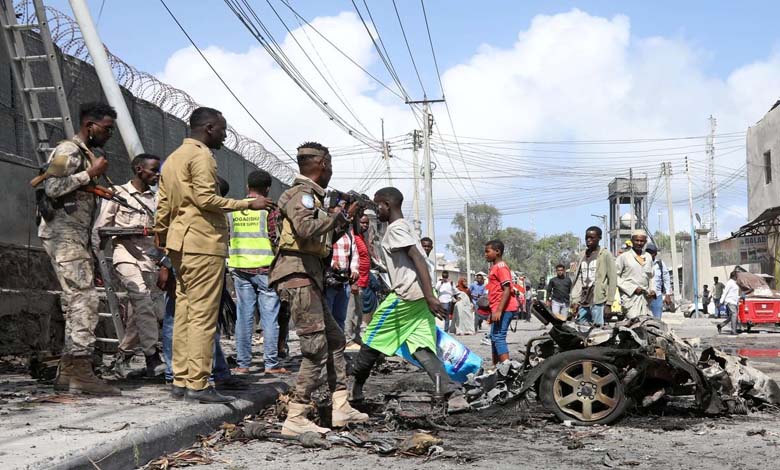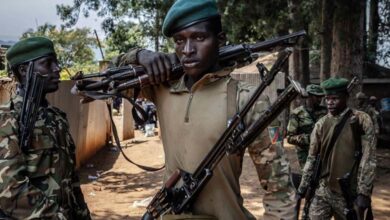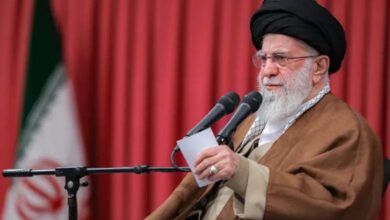Terrorism Under the Hammer of Allies in Somalia

From the Al-Miskad Mountains in the Puntland region to the Kenyan border, the Somali government is intensifying its efforts to put pressure on the terrorist groups Al-Shabaab and ISIS.
In what appears to be a coordinated effort, Puntland’s security forces launched a specialized operation in parallel with Kenya’s measures to close their shared borders, anticipating potential armed infiltrations.
-
The war on terrorism in Somalia; Tools and 3 scenarios
-
Somalia on Two Fronts: Progress Against Terrorism and Political Challenges
Targeted Operation in Al-Miskad
In a move that demonstrates the region’s growing security and intelligence capabilities, Puntland forces announced the arrest of a foreign fighter affiliated with ISIS in the Al-Miskad Mountains in northeastern Somalia.
According to Puntland authorities, the operation—described as “one of the most successful strikes against the organization in years”—was carried out following intelligence surveillance of infiltration routes and supply points.
The Al-Miskad Mountains, with their rugged terrain and natural hideouts, are considered ISIS’s last stronghold in the country.
-
Political Divisions Cast a Shadow over Counterterrorism Efforts in Somalia
-
Somalia Praises UAE’s Support in Fighting Terrorism
Puntland’s security officials confirmed that the captured foreign fighter was part of a cell responsible for training and coordinating the group’s operations in the area, an indication that foreign fighters continue to flow into Somalia despite strict security controls.
Puntland State President Said Abdullahi Deni described the operation as “a strategic turning point in counterterrorism efforts,” noting that Puntland forces had successfully dismantled financial and military networks that sustained the group. He also announced the deployment of 300 newly trained police officers in Garowe to strengthen internal security.
-
Somalia’s “Danab” Unit: From Counterterrorism to Accusations of Theft
-
Continued Terrorism Confrontation by Somalia Against Al-Shabaab
Mogadishu: Split Within Al-Shabaab
Meanwhile, in the south, Somalia’s federal government announced the arrest of a former Al-Shabaab commander named Mohamed Amin, known as “the Afghan Poet,” after he defected and surrendered to the national army.
According to Brigadier General Ibrahim Yusuf of Mogadishu’s security services, “the surrender is evidence of the internal erosion of Al-Shabaab’s cohesion.” He added that the Somali government will continue its amnesty and reintegration program for fighters who abandon extremist movements.
-
Somalia… Fiery Messages from the Presidency about the War on Terrorism
-
Somalia: Political crisis and terrorism
The defected commander, who led around sixty fighters, reportedly left the group due to worsening humanitarian conditions in Al-Shabaab’s camps and the lack of support and care for its members.
Upon his arrest, he expressed deep regret for his years with Al-Shabaab, revealing the inhumane living conditions, constant pressure, and lack of medical and humanitarian care that pushed him to defect.
-
Killing of Financial Leaders: A Major Blow to Al-Shabaab’s Funding Network in Somalia
-
Somalia: A presidential roadmap amid warnings of collapsing UN support
Northern Borders Under Security Watch
In Kenya, security forces have intensified operations along the Somali border, particularly in Mandera County, located in the tri-border area between Somalia, Ethiopia, and Kenya. The move follows reports of armed movements suspected to be linked to Al-Shabaab.
According to Kenyan sources, army and paramilitary police units have been conducting ground patrols and aerial surveillance, supported by intelligence gathered from local residents in border areas.
-
Somalia: Securing the Northern Mountains from ISIS and Fortifying the Capital Against al-Shabaab Attacks
-
High-Impact Operations Shake Terrorist Strongholds in Somalia: Field Victories and International Support
Kenyan officials stated that these operations aim to prevent any terrorist cells from infiltrating the country, adding that authorities have raised the alert level to its maximum in anticipation of possible attacks during the end of the year.
These measures come after a series of deadly attacks carried out by Al-Shabaab targeting infrastructure projects and communication towers in northeastern Kenya.
The Kenyan government, in coordination with Somalia and international partners, reaffirmed its commitment to a preventive cross-border deterrence policy to stop the spread of terrorist threats from Somali territory into Kenya.
-
Somalia Liberates Strategic City of Barire from Al-Shabaab
-
Beled Hawo Tensions Rise Between Jubaland and Somalia’s Federal Government – A Sudden Move and Growing Fragility












